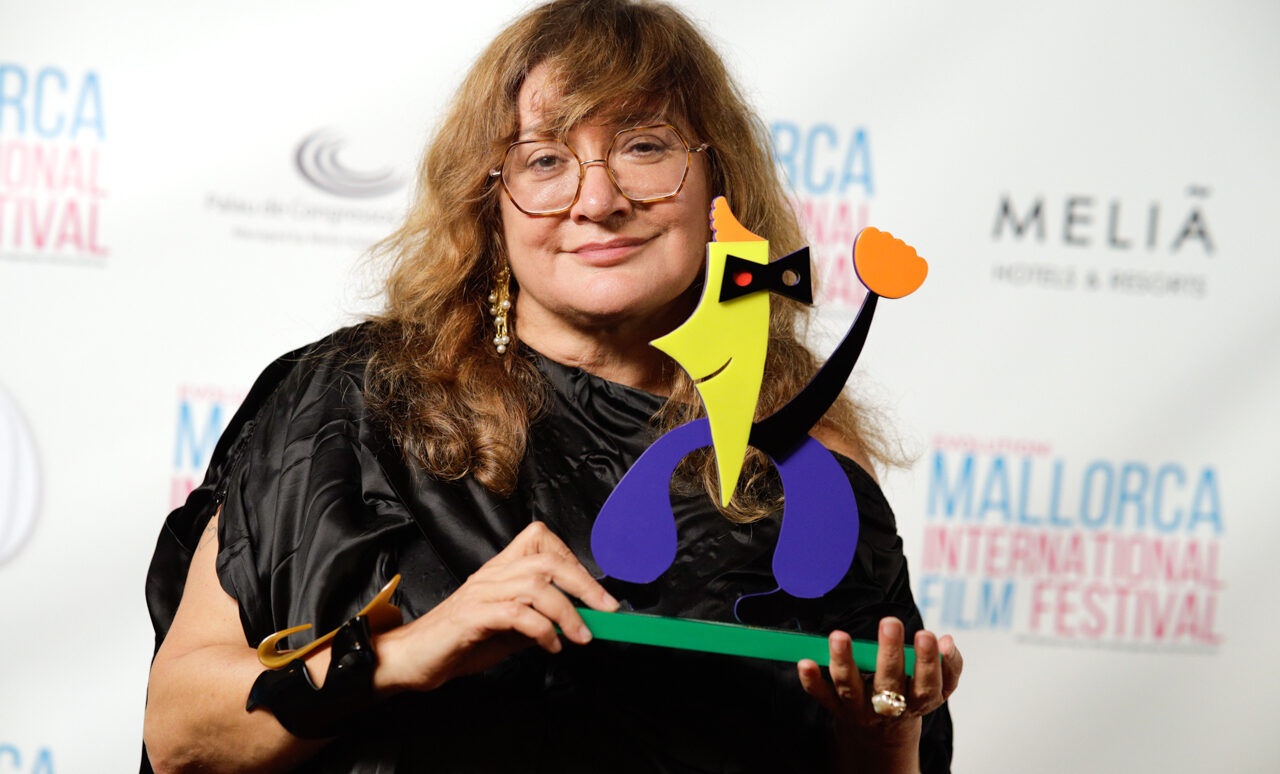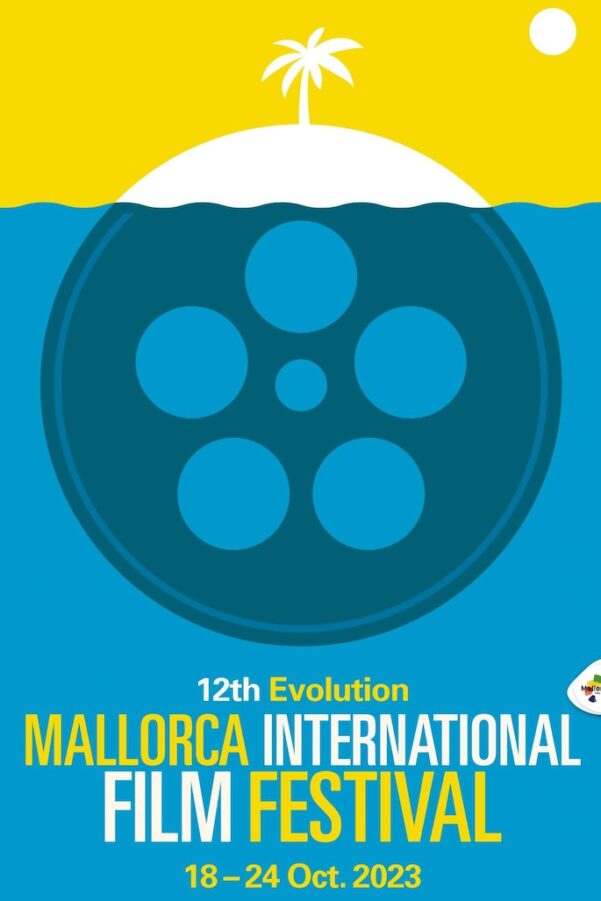“I think it’s my responsibility and my duty to protect my actors and be present”: Isabel Coixet on Un Amor, intimacy coordinators and inspiring female filmmakers at Evolution Mallorca 2023

The 12th edition of the Evolution Mallorca Film Festival saw a special screening of Isabel Coixet’s latest film Un Amor at the festival’s opening gala, where she also picked up the Evolution Vision Award 2023.
As a visionary director, Coixet’s extensive career is built on passion projects that sometimes explore the idea of outsiders and people that live outside the box, with previous films like The Bookshop and It Snows in Benidorm taking viewers on a journey down that path where people don’t fit in to the normal confines of society.
Her feature Un Amor is based on the dark writing from the novel of the same name by Sara Mesa and explores one woman called Nat’s (Laia Costa) desire to live by herself, removed from her previous life and the people she once knew. Coming from an emotional job as a translator for refugees, she escapes to a quiet place surrounded by rich landscapes of mountains and fields. Finding herself alone, she attempts to start her new and solitary life but finds herself soon caught up in the depths of a hornet’s nest, as the men in the village approach her with their own needs, carnal desires and transactional motives that eventually push her away from the simplicity she once craved.
The Upcoming had the pleasure of speaking to Coixet about her new film, being part of the Mallorca Film Festival 2023 and her approach to storytelling.
How does it feel to be here at the 12th Evolution Mallorca Film Festival, inspiring female filmmakers and receiving the Vision Award for Directing?
Sandra [Lipski] has been asking me to come to the festival for years: I always wanted to come, it’s very beautiful here. Finally all the stars aligned and I could be here this time. It’s great because you feel like you have some kind of legacy here – it’s not millions of people but for me, I never worked with millions of people, I worked with small groups of good people and they have a link with my movies and I feel that’s my mini-micro legacy.
Could you start by telling us what the essence of this story Un Amour is all about? What inspired you to bring the novel by Sara Messa to screen and what can viewers expect when they watch this film?
First of all, I’m a big fan of Sara Messa. I think she’s one of the best writers right now in Spain and Europe. She’s very original, very raw, with a dry way of telling stories, especially portraits of women. When I read it, I was so passionate about it. I felt like I’d been this person, this Nat, this character, in some moments of my life and I wanted to tell her story. Immediately I saw Laia Costa as the main character and then I spoke to Sara. She gave me the rights to tell the story and then we started working [on it] .
There are always going to be some changes in adapting a novel into a film, can you tell us about those and the motivation behind those modifications?
I felt, as an audience, you need to know a little bit more [about Nat] – not a big explanation, but what’s the background to this character? Why does she end up there? What was in her other life outside this little village that made her move there? Many years ago, I was in The Hague in this kind of commission like Nat’s job, where they decide the fate of refugees, and I talked a lot with the translators there and how responsible they felt and how burnt out they were from the job because every word can change the fate of these people. I thought this could be a very powerful reason to [want to] move outside everything. It’s true nowadays that translators work very hard for very little money and that place out there in the film, it’s the only thing that Nat can afford. So this is showing people’s real problems, these 35-year-olds who are highly qualified but their job has less and less value and housing is more and more expensive.
What was it about the character of Nat that you liked and related to most? And also having Laia Costa as the lead actress in this, why was she the first choice for you?
I was thinking about what it was about these damaged characters that I like, and I think, deep down, we all are damaged. Sometimes we pretend we are not, but we are, and I think that’s what makes for a more interesting film character. I met Laia many years ago in Berlin in the first film I saw of hers called Victoria and it’s a film [that rests] on her shoulders completely: one and a half hours and just one take. I thought it was amazing and I thought, “This girl has something” and I wanted to work with her. I wrote a series called Foodie Love with her in mind and we spent four months travelling all over the world. We had so much fun. She’s extraordinary because she actually doesn’t have any hint of Nat, she’s nothing like her at all, but I know her capacity to become someone else and I love working with her. It’s very fun, and challenging, too.
It’s interesting watching this woman leave her old life, trying to build a new start for herself and survive and build connections in this town, and then watch all these different men gravitate towards her like she’s prey. Then this transactional exchange occurs between her and Andreas, a builder from the town. What was that like to bring that story to life?
Through this [film], I’m not trying to say there are [always] huge tragedies and men are trying to rape women at every turn – but what I do see is microaggression. When Nat arrives at this place and someone says, “Oh you’re living here alone” or “You weren’t scared last night?”… What does it mean? Why do you dare to say these things, these passive-aggressive words? Even the other woman in my film, she has this picture-perfect life and she turns up and says, “Oh you’re not feeling right” – I’ve seen these things, they’ve happened to me. When you see a so-called friend, who’s not really a friend, and they’re taking an interest in how fucked up you feel – I can’t stand it. For me, these micro things are so difficult for a woman. Like the mansplaining: “You’re planting potatoes? Why are you doing that?” Who cares? Leave me alone! It happens here, it happens everywhere. I live in New York, LA and Paris and it’s not so different.
With the sex scenes between Andreas and Nat, you chose not to use an intimacy coordinator. Can you tell us about that choice? Are you pleased that you didn’t?
First of all, I asked my actors if they need one, because if they think it is necessary, then of course we should get one. Don’t get me wrong, some people need it, some directors need it, but in my case, I think it’s my responsibility and my duty to protect my actors and be present, knowing what’s going on and saying exactly what I want – what we need for the characters and the film. Sometimes it’s also asking the right questions because some people might have a problem but not want to say and you have to be able to read that. I talked to other directors who use one, and then Mia Hansen-Løve, the French director, asked me if I needed one and she said, “No me neither”. So, I think you can shoot these scenes with care and respect and know when your actors feel comfortable, it’s your duty.
Can you tell us about the filming process?
I love the filming process: being on set with a good team of people that you trust, with actors who are amazing at their job – it’s a high, it’s like a drug! I would film forever.
What do you feel most proud of with this film Un Amor?
I’m most proud of the surprises, the things I didn’t plan: the layers, the complexities, how sometimes a frame says more things than a two-hour monologue.
What other films and books inspired you to make this recounting of unusual love and relationships? It’s not your conventional Notting Hill romance, is it?
No, if you’re looking for Hugh Grant, he’s not there! If you’re looking for a feel-good movie then, you’ll get it in the end, but you have to suffer a little. I think this film has [elements] of other pieces I’ve done – The Bookshop and The Secret Life of Words – but one film that really inspired me was a film from the 70s called Wonder made by a filmmaker who just did one film and then she died. I think there’s something of the despair of the character that’s in this and it’s a film I really like. In fact, I did a Q and A a few weeks ago about that film because we have to remind ourselves that women don’t have to be perfect: we don’t have to please or to pretend.
What do you hope viewers will take away when they watch this?
I think at the end of the movie, I don’t know what’s going to happen with Nat’s head, but I know she regains her body, and I think the thing I want people to take away from the film is: we have to dance more.
What’s next for you?
I’m working on an adaptation of a novella. It’s a project with Penelope Cruz about one of the early novels of Elena Ferrante called The Days of Abandonment. It’s a contemporary story about three young people living in Paris. Let me tell you, Emily in Paris it is not. It’s a project I’m very fond of; it could be something beautiful.
Ezelle Alblas
Evolution Mallorca International Film Festival 2023 took place from 18th to 24th October 2023. For further information visit here.

























Facebook
Twitter
Instagram
YouTube
RSS